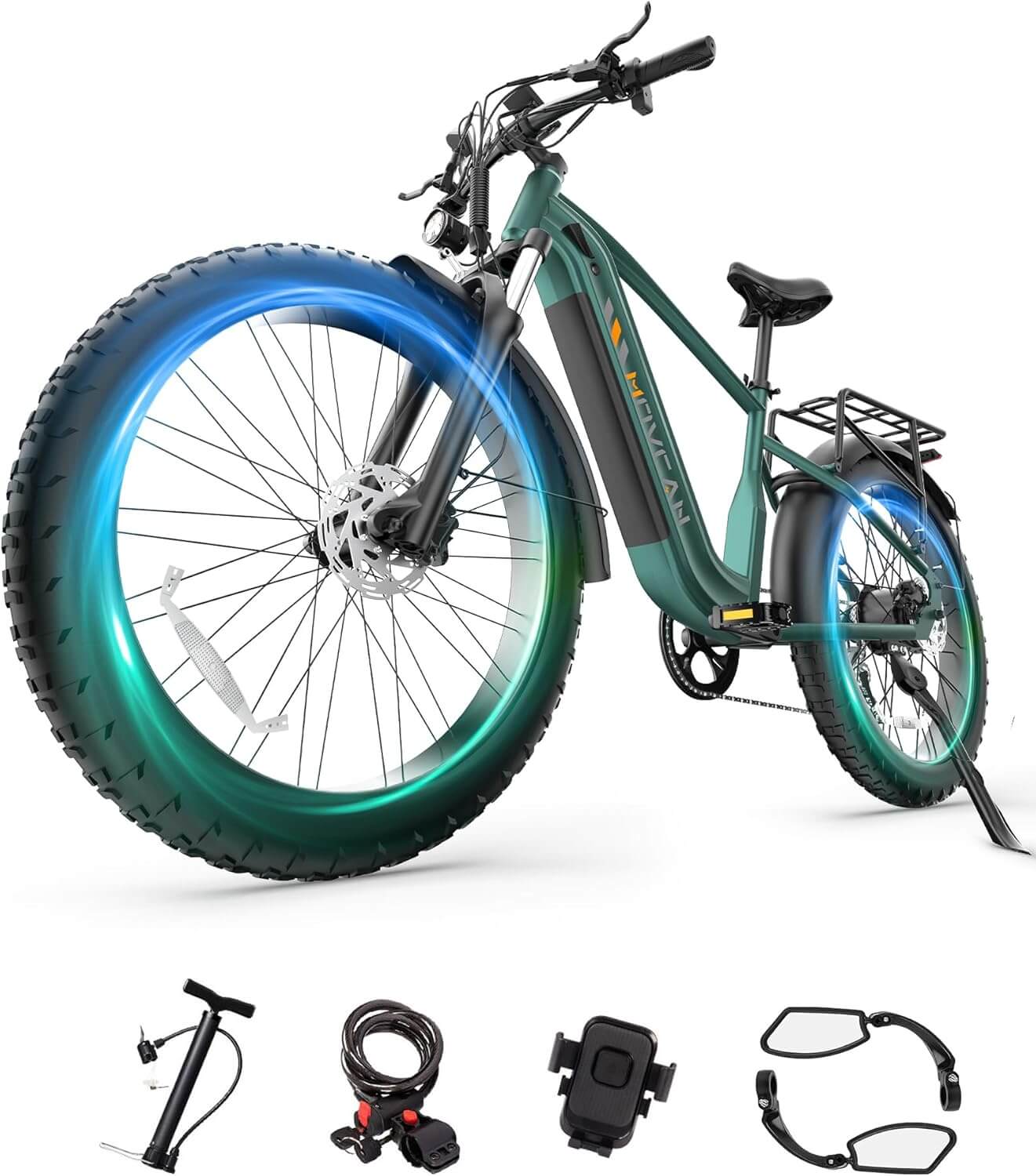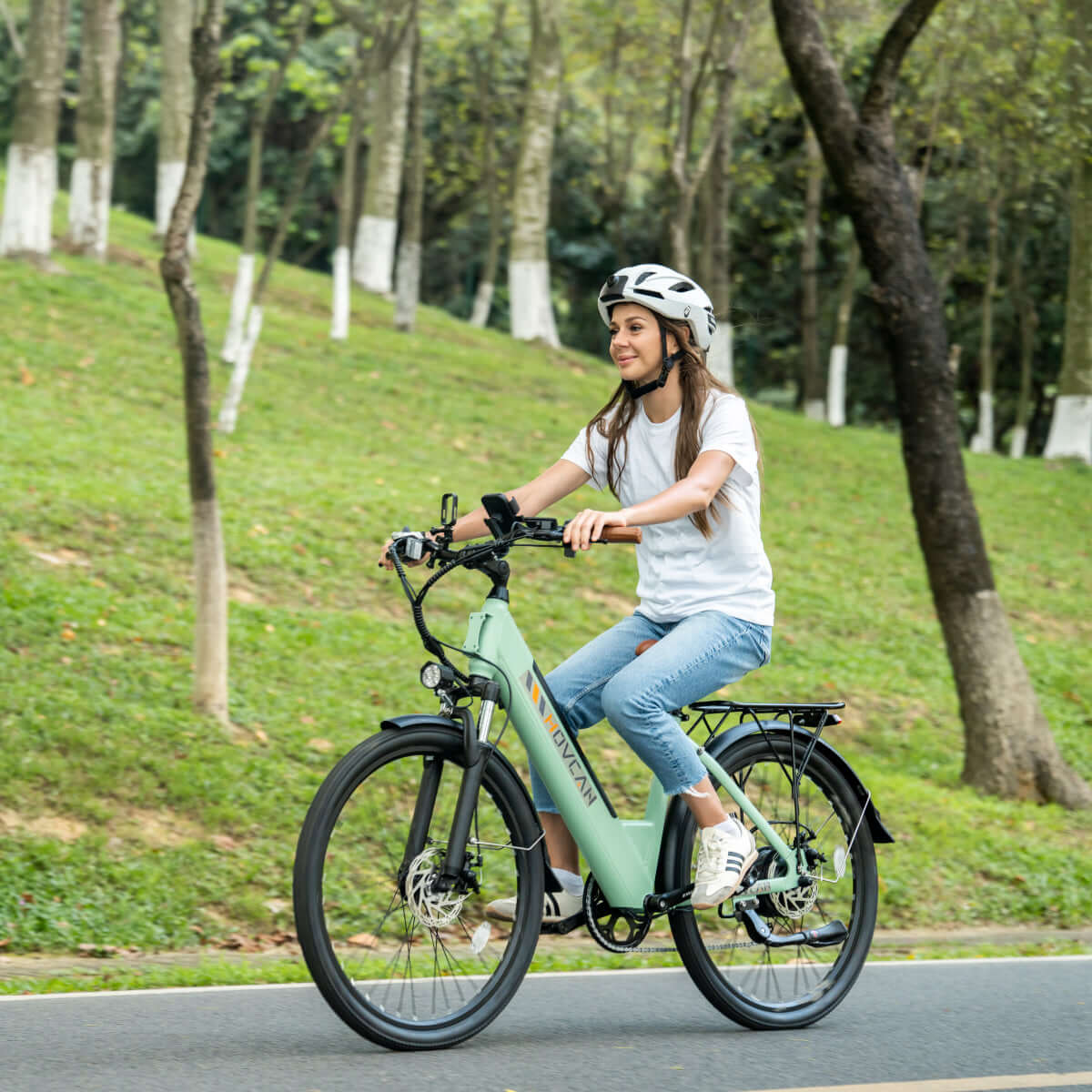Blog
Sustainable Transportation Guide 2025: E-Bikes Lead
The global transportation landscape is undergoing a revolutionary transformation, with sustainable transportation solutions taking center stage in the fight against climate change. As transportation accounts for approximately 25% of global greenhouse gas emissions and remains one of the most challenging sectors to decarbonize, the urgency for innovative, eco-friendly alternatives has never been greater. At the forefront of this green revolution are electric bikes (e-bikes), which are rapidly emerging as the most practical and impactful sustainable transportation solution for urban mobility.
How E-Bikes Are Leading the Green Revolution in 2025
The global transportation sector is experiencing a revolutionary shift toward sustainability, with eco-friendly transportation solutions taking center stage in combating climate change. As transportation accounts for approximately 23% of global greenhouse gas emissions and faces predictions to double by 2050, the urgency for sustainable alternatives has never been greater. Among the most promising solutions, electric bikes (e-bikes) are emerging as the frontrunners in the green transportation revolution, offering an optimal balance of environmental benefits, cost-effectiveness, and practical mobility.
How Bio-Based Composites Are Transforming Electric Bicycle Manufacturing
Bio-based composite materials like bamboo and flax fiber are revolutionizing e-bike manufacturing, reducing carbon footprints by up to 60%, offering superior vibration damping, and creating fully recyclable bicycles that challenge traditional aluminum and carbon fiber dominance.
Hydrogen Fuel Cell Electric Bicycles: A New Frontier in Zero Emission Technology
As the world races toward zero-emission transportation, a new technology is quietly emerging in the electric bicycle industry that could revolutionize how we think about sustainable mobility. Hydrogen fuel cell electric bicycles (HFCEBs) represent a fascinating convergence of cutting-edge technology and practical urban transportation, offering unique advantages that traditional battery-powered e-bikes cannot match.
Forest-Friendly Cycling: the Impact of Electric Mountain Bikes on Ecosystems
As electric mountain bikes (eMTBs) surge in popularity across the globe, with trail networks now spanning 283,020 miles across 109 countries, a critical question emerges: How do these powerful machines impact the delicate ecosystems they traverse? The answer is complex, nuanced, and increasingly important as we balance outdoor recreation with environmental conservation.
The Environmental Cost of Lithium Batteries
While e-bikes represent a sustainable transportation solution, lithium battery production carries significant environmental and social costs—from water depletion in Chile's Atacama Desert to child labor in Congo's cobalt mines. However, emerging technologies and industry responses are paving the way for more responsible sourcing by 2025.
Trash to Treasure: A Guide to Recycling E-Bike Components
The e-bike recycling industry is transforming from waste management to a $23+ billion circular economy opportunity by 2025, with innovative business models turning discarded batteries, motors, and frames into valuable resources while creating sustainable transportation solutions.
The Second Life of Electric Bikes: Innovative Recycling and Reuse Models
As the electric bike market explodes—with projections showing growth from USD 54.7 billion in 2025 to USD 124.6 billion by 2035—we're facing an unprecedented opportunity to revolutionize how we handle end-of-life e-bikes. The circular economy isn't just a buzzword anymore; it's becoming the blueprint for sustainable e-mobility.
Electric Bicycles vs. Cars: A Comprehensive Lifecycle Carbon Footprint Analysis
This comprehensive analysis examines the environmental impact of electric bicycles, traditional gasoline cars, and electric vehicles from manufacturing through disposal, providing you with the data needed to make informed decisions about sustainable transportation.










